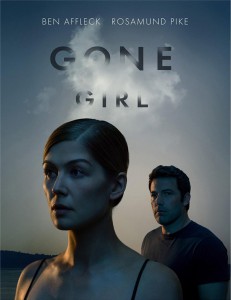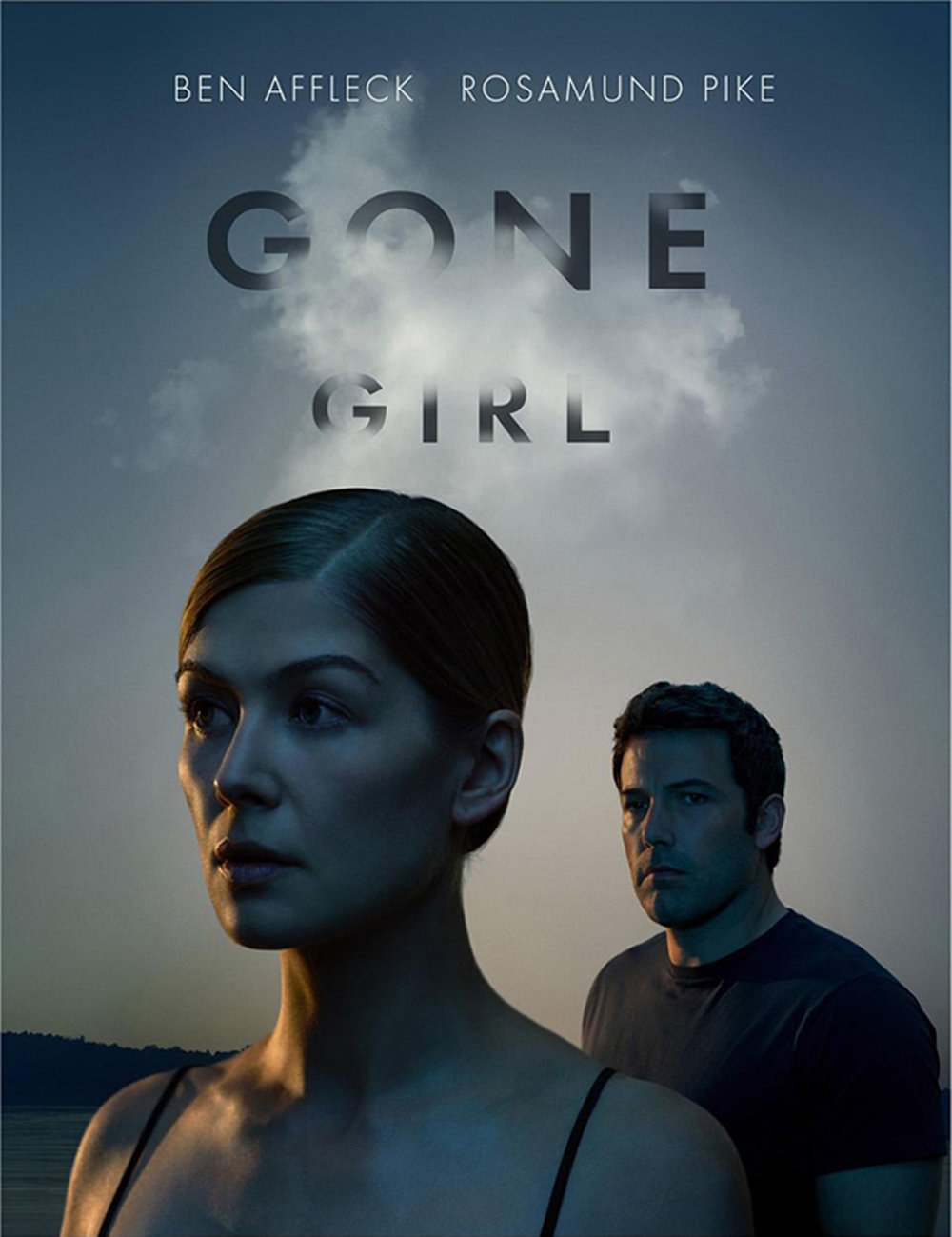 By Wesley Sharer
By Wesley Sharer
When I think of my wife I always think of her head. I picture cracking her lovely skull, unspooling her brains, trying to get answers. The primal questions of any marriage. What are you thinking? How are you feeling? What have we done to each other? ~Gillian Flynn, Gone Girl
Gone Girl is a film that works perfectly well on its own, but familiarity with Gillian Flynn’s novel before watching it does change your viewing experience — a more rare occurrence than some assume.
Films ought to be weighed on their own terms to avoid the common complaint that “it was worse than the book,” but often filmmakers don’t take enough risks to justify distancing analysis from this type of book-to-film comparison. In the case of Gone Girl, however, cries for a return to the source material are slightly more justified because of the complicated and controversial nature of the characters and subject matter.
Gone Girl is not a bad adaptation, but it is problematic. David Fincher is one of the few truly great American directors working today (he’s been nominated for two Oscars), and his filmography is filled with modern classics (Se7en, Fight Club). Most importantly, he likes working with preexisting material, and 6 of his 10 feature films are based on novels or short stories. He even worked directly with Gillian Flynn to adapt her novel into a screenplay, and the page-to-screen transformation is faithful and entertaining. So what’s the problem, you may ask.
The problem is this: with characters as complicated as Gone Girl‘s central couple, the added length of a book can be invaluable. Each in their own way, both Nick and Amy Dunne are problematic portrayals of their respective genders. Nick is careless; Amy is calculating. Nick is lazy; Amy is violent.
These types of naturally controversial characters are easier to accept in the longer form of the novel. Part of the benefit of books is that you simply get more time and space to digest these characters. On top of this, the author is afforded a greater opportunity to develop the internal lives of characters in intricate ways that are often hard to accomplish in the transition to the big screen.
After the release of Fincher’s Gone Girl, the internet became a wasteland of answers to the questions raised by the film’s sexual politics. Is Amy a misogynist portrayal of women? Admittedly, Gillian Flynn did receive some flack for her book when it first came out, but it was never enough to stop her from making the New York Times Best Seller list. The book has the opportunity to preemptively answer questions about the characters that the movie simply doesn’t have time to address.
In the movie, it feels like Nick is the protagonist and Amy is the antagonist, but in the book their relationship is much more complex. Neither one is really the type of person you’d feel comfortable leaving your kids with for the weekend.
The movie attempts to recreate the most important aspects of each character, but some of the intricacies don’t play out as thoroughly on celluloid as they did on paper. Nick’s not a great guy, but he’s not nearly as problematic in the film as he was in the book. These subtle differences make cinematic Nick and Amy slightly more ambiguous than their literary counterparts.
This doesn’t mean one presentation of the characters is more valid than the other—sometimes the more ambiguous nature of film can even spark more interesting conversations. What’s certain is that the book and the movie are different entities, and whether you like one or the other more, they both work individually, as well as together. Coming into the film with knowledge of the characters from the novel will give you a different experience than someone who hasn’t met them yet. However, whether met on page or screen, Nick and Amy captivate us by taking on a complex and disturbingly provocative life of their own.
Wesley Sharer is a contributor at Literary Traveler and writes about film on his own blog, Screening Notes, where you can read his full analysis of David Fincher’s Gone Girl.












4 comments
I loved the book and just liked the movie. I enjoyed it, but I agree with you… it’s kind of problematic. I think it flattens Amy out. Especially that whole “cool girl” speech that was so cutting and sharp in the book. It took on the social pressures that women face to be perfect, to be feisty but submissive, “cool.” The book also spoke to the pressures men face from society—the way that society fails both genders. But so much of this was lost in the movie.
Great review!
Thanks Katy! I liked the movie a lot, but I think you might be right that it loses some of the examination of the pressures men face from society. I did find the “cool girl” speech in the movie to be pretty incisive, though.
I love that you pointed out how movie adaptions can, (and in this particular case certainly did) simplify and flatten complex relationships and characters. One of the most compelling parts of Gone Girl as a novel is the ability to peer inside the head and heart of two complex, irreparably flawed characters. Each is the other’s antagonist, and see themselves as the protagonist of their unravelling story. The book devels deeply into problematic preconceptions of gender roles and expectations, as well as what is gained and lost through marriage. The fast pace of the a “thriller” movie couldn’t do that weighty analysis justice.
I think the preference of book over movie (or vice versa) is telling of what the audience gets out of the medium: are you snared by the thrilling and suspenseful plot, or are you more invested in the uncomfortable and timely issues it raises ?
Thanks for your comment, Haley! I love your idea that each character is the other’s antagonist, and that they each see themselves as the protagonist of their own story. However, I think the “flattening” of Amy makes her more controversial and uncomfortable precisely because we understand her less. She’s more ambiguous, and ambiguity inspires thought and conversation outside of the narrative (thus the proliferation of controversy in response to the film). I don’t think either the book or the movie handles the timely issues of the story better, my point was simply that they handle them differently.